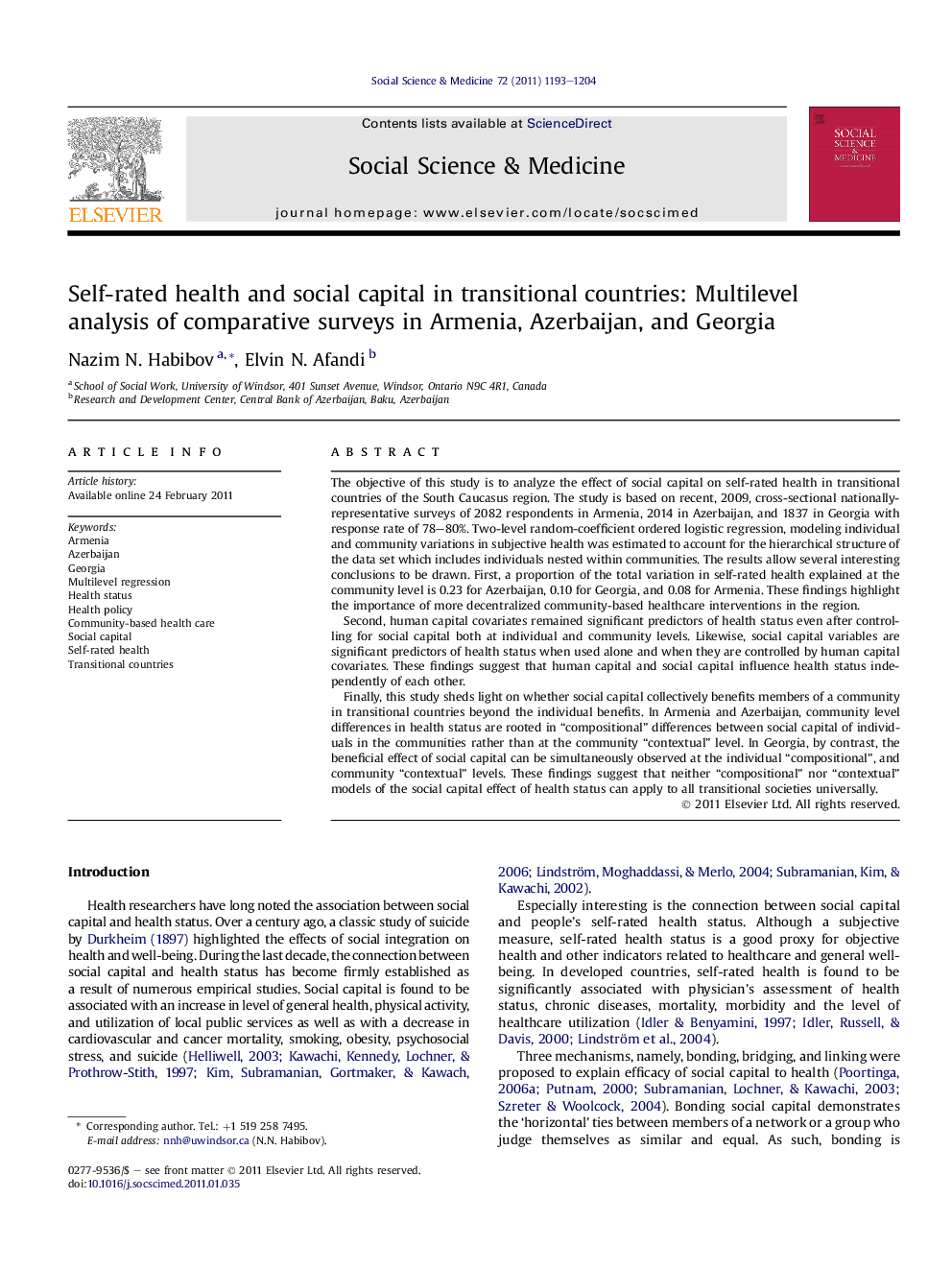| کد مقاله | کد نشریه | سال انتشار | مقاله انگلیسی | نسخه تمام متن |
|---|---|---|---|---|
| 952830 | 927541 | 2011 | 12 صفحه PDF | دانلود رایگان |

The objective of this study is to analyze the effect of social capital on self-rated health in transitional countries of the South Caucasus region. The study is based on recent, 2009, cross-sectional nationally-representative surveys of 2082 respondents in Armenia, 2014 in Azerbaijan, and 1837 in Georgia with response rate of 78–80%. Two-level random-coefficient ordered logistic regression, modeling individual and community variations in subjective health was estimated to account for the hierarchical structure of the data set which includes individuals nested within communities. The results allow several interesting conclusions to be drawn. First, a proportion of the total variation in self-rated health explained at the community level is 0.23 for Azerbaijan, 0.10 for Georgia, and 0.08 for Armenia. These findings highlight the importance of more decentralized community-based healthcare interventions in the region.Second, human capital covariates remained significant predictors of health status even after controlling for social capital both at individual and community levels. Likewise, social capital variables are significant predictors of health status when used alone and when they are controlled by human capital covariates. These findings suggest that human capital and social capital influence health status independently of each other.Finally, this study sheds light on whether social capital collectively benefits members of a community in transitional countries beyond the individual benefits. In Armenia and Azerbaijan, community level differences in health status are rooted in “compositional” differences between social capital of individuals in the communities rather than at the community “contextual” level. In Georgia, by contrast, the beneficial effect of social capital can be simultaneously observed at the individual “compositional”, and community “contextual” levels. These findings suggest that neither “compositional” nor “contextual” models of the social capital effect of health status can apply to all transitional societies universally.
Journal: Social Science & Medicine - Volume 72, Issue 7, April 2011, Pages 1193–1204